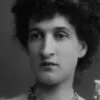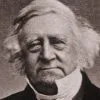However, it is my judgment in these things that when you see something that is technically sweet, you go ahead and do it and you argue about what to do about it only after you have had your technical success. That is the way it was with the atomic bomb.
J. Robert Oppenheimer (1904-1967) American theoretical physicist, "Father of the Atomic Bomb" [Julius Robert Oppenheimer]
“In the matter of J. Robert Oppenheimer,” testimony transcript, US Atomic Energy Commission, Personnel Security Board (1954-04-13)
(Source)
Quotations about:
excitement
Note not all quotations have been tagged, so Search may find additional quotes on this topic.
The only real difference between Anxiety and Excitement was my willingness to let go of Fear.
Barbara Brown Taylor (b. 1951) American minister, academic, author
Learning to Walk in the Dark, ch. 4 (2014)
(Source)
A life without adventure is likely to be unsatisfying, but a life in which adventure is allowed to take whatever form it will is sure to be short.
Bertrand Russell (1872-1970) English mathematician and philosopher
Authority and the Individual, Lecture 1 (1949)
(Source)
Collection, with some edits, of the inaugural Reith Lectures, BBC, "Authority and the Individual," No. 1 "Social Cohesion and Human Nature" (25:36) (1948-12-26).
I don’t know that it’s an issue for anybody but me, but it’s true that nothing I did where the only reason for doing it was the money was ever worth it, except as bitter experience. Usually I didn’t wind up getting the money, either. The things I did because I was excited, and wanted to see them exist in reality have never let me down, and I’ve never regretted the time I spent on any of them.
Neil Gaiman (b. 1960) British author, screenwriter, fabulist
Speech (2012-05-17), Commencement, University of the Arts, Philadelphia [06:33]
(Source)
I’ve come up with a set of rules that describe our reactions to technologies:
1. Anything that is in the world when you’re born is normal and ordinary and is just a natural part of the way the world works.
2. Anything that’s invented between when you’re fifteen and thirty-five is new and exciting and revolutionary and you can probably get a career in it.
3. Anything invented after you’re thirty-five is against the natural order of things.
Douglas Adams (1952-2001) English author, humourist, screenwriter
The Salmon of Doubt (2002)
(Source)
An elegant writer has observed, that wit may do very well for a mistress, but that he should prefer reason for a wife. He that deserts the latter, and gives himself up entirely to the guidance of the former, will certainly fall into many pitfalls and quagmires, like him, who walks by flashes of lightning, rather than by the steady beams of the sun.
Charles Caleb "C. C." Colton (1780-1832) English cleric, writer, aphorist
Lacon: Or, Many Things in Few Words, Vol. 1, § 71 (1820)
(Source)
Never turn down the chance of an adventure, unless such chances are coming thick and fast, and maybe not even then.
Mignon McLaughlin (1913-1983) American journalist and author
The Second Neurotic’s Notebook, ch. 4 (1966)
(Source)
FIRST SERVINGMAN: Let me have war, say I. It exceeds peace as far as day does night. It’s sprightly walking, audible, and full of vent. Peace is a very apoplexy, lethargy; mulled, deaf, sleepy, insensible; a getter of more bastard children than war’s a destroyer of men.
William Shakespeare (1564-1616) English dramatist and poet
Coriolanus, Act 4, sc. 5, l. 244ff (4.5.244-249) (c. 1608)
(Source)
From the happy expression on their faces you might have supposed that they welcomed the war. I have met with men who loved stamps, and stones, and snakes, but I could not imagine any man loving war.
Margot Asquith (1864-1945) British socialite, author, wit [Emma Margaret Asquith, Countess Oxford and Asquith; Margot Oxford; née Tennant]
Autobiography, Vol. 2, 3 Aug 1914 (1922)
(Source)
Of the cheering crowds outside 10 Downing Street on 3 Aug 1914, the night before the British Government (with her husband as Prime Minister) declared war against Germany.
Tiny Monster Island is one of the more boring Mechanicsburg landmarks. Unless, of course, one is foolish — or unfortunate — enough to leave the path. Then it becomes very exciting indeed.
Phil Foglio (b. 1956) American writer, cartoonist
Agatha H and the Voice of the Castle (2014)
(Source)
That person, then, whose mind is quiet through consistency and self-control, who finds contentment in himself, and neither breaks down in adversity nor crumbles in fright, nor burns with any thirsty need nor dissolves into wild and futile excitement, that person is the wise one we are seeking, and that person is happy.
[Ergo hic, quisquis est, qui moderatione et constantia quietus animo est sibique ipse placatus, ut nec tabescat molestiis nec frangatur timore nec sitienter quid expetens ardeat desiderio nec alacritate futtili gestiens deliquescat, is est sapiens quem quaerimus, is est beatus.]
Marcus Tullius Cicero (106-43 BC) Roman orator, statesman, philosopher
Tusculan Disputations [Tusculanae Disputationes], Book 4, ch. 17 (4.17) / sec. 37 (45 BC) [tr. Graver (2002)]
(Source)
(Source (Latin)). Alternate translations:He therefore, call him by what name you will, who through Moderation and Constancy, hath quiet of mind, and is at Peace with himself; so as neither to fret out of Discontent, nor to be confounded with Fear, who neither is inflam'd with an impatient longing after any thing, nor ravish'd out of himself into the Fools Paradice of an empty Mirth; this is the wise man, after whom we are in quest; this the Happy man.
[tr. Wase (1643)]Whoever then, through moderation and consistency, is at rest in his mind, and in calm possession of himself, so as neither to pine with care, nor be dejected with fear, neither to be inflamed with desire, nor dissolved by extravagant joy, such a one is the very wise man we enquire after, the happy man.
[tr. Main (1824)]Therefore the man, whoever he is, who has quiet of mind, through moderation and constancy, and thus at peace with himself, is neither corroded with cares, nor crippled by fear; and, thirsting for nothing impatiently, is exempt from the fires of desire, and, dizzied by the fumes of no futile felicity, reels with no riotous joy: this is the wise man we seek: this man is happy.
[tr. Otis (1839)]Whoever, then, through moderation and constancy, is at rest in his mind, and in calm possession of himself, so as neither to pine with care, nor be dejected with fear, nor to be inflamed with desire, coveting something greedily, nor relaxed by extravagant mirth, -- such a man is that identical wise man whom we are inquiring for, he is the happy man.
[tr. Yonge (1853)]Whoever then has his mind kept in repose by moderation and firmness, and is at peace with himself so that he is neither wasted by troubles nor broken down by fear, nor burns with longing in his thirsty quest of some object of desire, nor flows out in the demonstration of empty joy, is the wise man whom we seek; he is the happy man.
[tr. Peabody (1886)]
Good news goes unnoticed. This is a well-known property of the press in the free world. Improvements are never dramatic. Life improves slowly and goes wrong fast, and only catastrophe is clearly visible.
Edward Teller (1908-2003) Hungarian-American theoretical physicist
The Pursuit of Simplicity (1980)
(Source)
When it’s over I want to say: All my life
I was a bride married to amazement.
I was a bridegroom, taking the world into my arms.
Most of life is so dull that there is nothing to be said about it, and the books and talks that would describe it as interesting are obliged to exaggerate, in the hope of justifying their own existence. Inside its cocoon of work or social obligation, the human spirit slumbers for the most part, registering the distinction between pleasure and pain, but not nearly as alert as we pretend. There are periods in the most thrilling day during which nothing happens, and though we continue to exclaim, “I do enjoy myself,” or, “I am horrified,” we are insincere. “As far as I feel anything, it is enjoyment, horror” — it’s no more than that, really, and a perfectly adjusted organism would be silent.
E. M. Forster (1879-1970) English novelist, essayist, critic, librettist [Edward Morgan Forster]
A Passage to India, ch. 14 (1924)
(Source)
ENOBARBUS: Age cannot wither her, nor custom stale
Her infinite variety; other women cloy
The appetites they feed, but she makes hungry
Where most she satisfies.William Shakespeare (1564-1616) English dramatist and poet
Antony and Cleopatra, Act 2, sc. 2, l. 276ff (2.2.276-279) (1607)
(Source)
Better vexation than stagnation: marriage may often be a stormy lake, but celibacy is almost always a muddy horse pond.
Thomas Love Peacock (1785-1866) English novelist, satirist, poet, merchant
Melincourt, ch. 7 (1817)
(Source)
It is in vain to say human beings ought to be satisfied with tranquility: they must have action; and they will make it if they cannot find it.
Charlotte Brontë (1816-1855) British novelist [pseud. Currer Bell]
Jane Eyre, ch. 12 [Jane] (1847)
(Source)
If the old fairy-tale ending ‘They lived happily ever after’ is taken to mean ‘They felt for the next fifty years exactly as they felt the day before they were married’’, then it says what probably never was nor ever would be true, and would be highly undesirable if it were. Who could bear to live in that excitement for even five years? What would become of your work, your appetite, your sleep, your friendships?
C. S. Lewis (1898-1963) English writer, literary scholar, lay theologian [Clive Staples Lewis]
Mere Christianity, “Christian Marriage” (1952)
(Source)
One must, in one’s life, make a choice between boredom and suffering.
Germaine de Staël (1766-1817) Swiss-French writer, woman of letters, critic, salonist [Anne Louise Germaine de Staël-Holstein, Madame de Staël, Madame Necker]
Letter to Claude Hochet (Summer 1800)
Quoted in J. Christopher Herold, Mistress to an Age: A Life of Madame de Staël (1958). Herold added, "Her decision was emphatically in favor of suffering, which after all was a pleasure compared to boredom."
We should have a glorious conflagration if all who cannot put fire into their works would only consent to put their works into the fire.
Charles Caleb "C. C." Colton (1780-1832) English cleric, writer, aphorist
Lacon: Or, Many Things in Few Words, Vol. 1, Preface (1820)
(Source)
It has been remarked (by a lady infinitely cleverer than the present author) how kindly disposed the world in general feels to young people who either die or marry. Imagine then the interest that surrounded Miss Wintertowne! No young lady ever had such advantages before: for she died upon the Tuesday, was raised to life in the early hours of Wednesday morning, and was married upon the Thursday; which some people thought too much excitement for one week.
A strong mind is one which does not lose its balance even under the most violent excitement.
[Ein starkes Gemüt ist ein solches, welches auch bei den heftigsten Regungen nicht aus dem Gleichgewicht kommt.]
Karl von Clausewitz (1780-1831) Prussian soldier, historian, military theorist
On War [Vom Kriege], Book 1, ch. 3 “On Military Genius [Der Kriegerische Genius],” (1.3) (1832) [tr. Graham (1873)]
(Source)
(Source (German)). Alternate translations:A stout heart is one which does not lose its balance even under the most violent excitement.
[tr. Jolles (1943)]A strong character is one that will not be unbalanced by the most powerful emotions.
[tr. Howard & Paret (1976)]
if you are writing without zest, without gusto, without love, without fun, you are only half a writer. It means you are so busy keeping one eye on the commercial market, or one ear peeled for the avant-garde coterie, that you are not being yourself. You don’t even know yourself. For the first thing a writer should be is — excited. He should be a thing of fevers and enthusiasms. Without such vigor, he might as well be out picking peaches or digging ditches; God knows it’d be better for his health.
Ray Bradbury (1920-2012) American writer, futurist, fabulist
“The Joy of Writing,” Zen & the Art of Writing and The Joy of Writing, Capra Chapbook No. 13 (1973)
(Source)
Reprinted in Bradbury, Zen in the Art of Writing (1990).
Boredom is therefore a vital problem for the moralist, since at least half the sins of mankind are caused by the fear of it.
Bertrand Russell (1872-1970) English mathematician and philosopher
Conquest of Happiness, Part 1, ch. 4 “Boredom and Excitement” (1930)
(Source)
“When you wake up in the morning, Pooh, what’s the first thing you say to yourself?”
“What’s for breakfast?” said Pooh. “What do you say, Piglet?”
“I say, I wonder what’s going to happen exciting today?” said Piglet.
Pooh nodded thoughtfully.
“It’s the same thing,” he said.
HAL: If all the year were playing holidays,
To sport would be as tedious as to work,
But when they seldom come, they wished-for come,
And nothing pleaseth but rare accidents.William Shakespeare (1564-1616) English dramatist and poet
Henry IV, Part 1, Act 1, sc. 2, l. 211ff (1.2.211-212) (1597)
(Source)





























